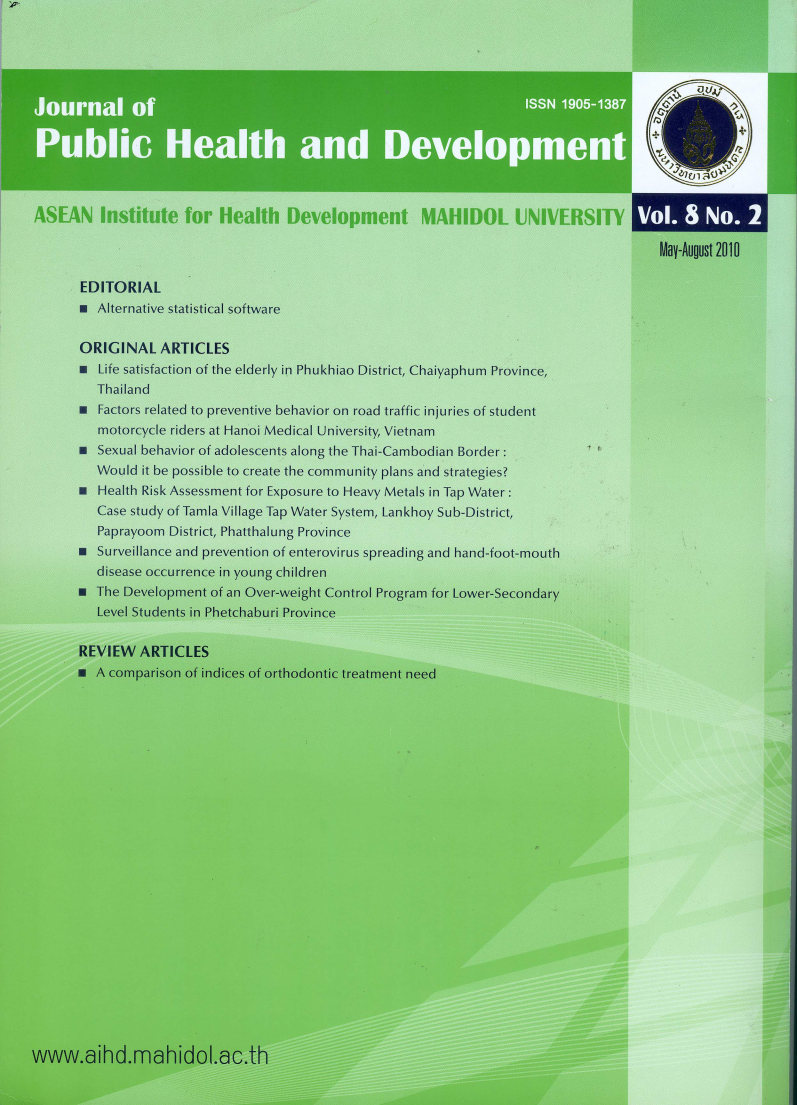Sexual behavior of adolescents along the Thai-Cambodian Border Would it be possible to create the community plans and strategies?
Main Article Content
Abstract
Adolescent sexual behavior along the Thai-Cambodian border area raises important social and health issues. The aims of this cross-sectional study were (1) to determine adolescents’ actual sexual behavior; (2) to explain the contexts of sexual intercourse of adolescents, and (3) to establish an effective strategy for dealing with the consequences of early sexual activity. The research was divided into two phases: problem identification and community planning. Questionnaires were developed and distributed to two schools with atotal of 2,364 respondents. Appreciate Influence Control (AIC) was applied for community planning.
Approximately 13.55% of the respondents had already had sexual experiences, mostly when they were in Mathayom 1-3. The age of first sexual intercourse ranged between eight and eighteen years of age, and usually occurred without protective measures. The context of adolescents’ sexual intercourse ranged from communication media and technology development, improper tourism development, human rights perspective, natural environmental conditions, border market, inappropriate time use from educational reform, and lack of parental supervision. The results from the survey were analyzed and presented to 120 community members. The five main strategic policies were recommended by consensus.
By the means of community process, AIC can be effectively used for community planning, even for sexual problems, but brainstorming and discussion must be well planned and organized.


